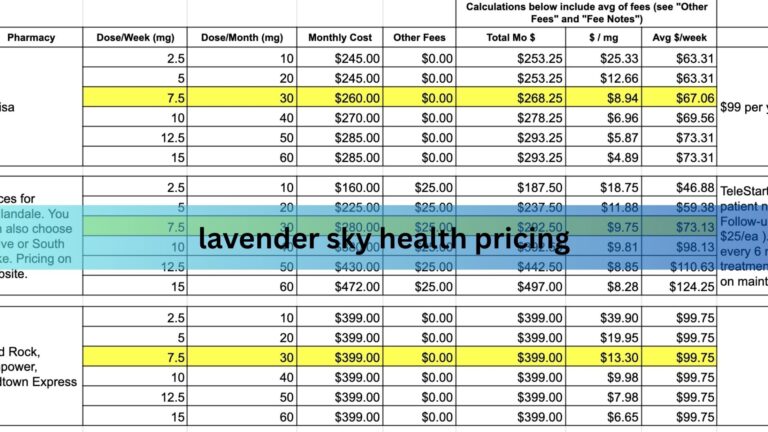How to Start a Home Health Agency With No Money – A Practical Guide to Launching a Mission-Driven Business!
Starting a home health agency is not only a rewarding business venture but also a critical service that meets the growing needs of America’s aging population. With the demand for in-home care surging, many aspiring entrepreneurs ask the same question: How can I start a home health agency with no money?
Although launching any business without capital presents challenges, it’s not impossible. With creativity, strategic planning, and leveraging the right resources, you can start a home health agency even if you’re starting from zero.
This comprehensive guide walks you through actionable steps, legal requirements, funding alternatives, and success strategies to help you launch your agency with little or no upfront investment.
Why Start a Home Health Agency?

1. High Demand for In-Home Care
The U.S. has an aging population, with baby boomers entering retirement and requiring assistance with daily living activities. According to the U.S. Bureau of Labor Statistics, employment for home health and personal care aides is projected to grow 22% between 2022 and 2032—much faster than average.
2. Low Overhead Compared to Traditional Healthcare Facilities
Home health agencies don’t require large offices or expensive medical equipment to start. The business model is leaner than that of nursing homes or hospitals, making it more accessible.
3. Opportunity to Make a Real Difference
As a home health provider, you directly improve clients’ quality of life. This makes the business emotionally fulfilling as well as financially viable.
Step-by-Step: Starting a Home Health Agency With No Money
1. Research Your State’s Licensing Requirements
Each U.S. state has different laws governing home health agencies. You’ll need to:
- Determine if your state requires Medicare/Medicaid certification.
- Understand if you need a Home Health Agency (HHA) license or a Personal Care Agency (PCA) license.
- Review required credentials for staff (e.g., nurses, aides, social workers).
Start by visiting your state’s Department of Health website or contacting a local small business development center.
Pro Tip: Some states allow “non-skilled” home care businesses (help with meals, dressing, transportation) with fewer licensing hurdles.
2. Form a Legal Business Entity
To protect yourself legally and start building business credit, you should:
- Register a Limited Liability Company (LLC) or Corporation (S-Corp is common for small healthcare businesses).
- Obtain an EIN (Employer Identification Number) from the IRS (free).
- File for a business license in your city or county.
Many states allow online registration with low-cost filing fees or payment plans.
Also Read: Does Veterans Disability Payments Interfere with WellSense Health Care Coverage
3. Write a Lean Yet Compliant Business Plan
You don’t need fancy charts or expensive consultants. Your business plan should outline:
- Services Offered: Skilled nursing, personal care, therapy, etc.
- Target Market: Elderly, disabled adults, veterans.
- Marketing Strategy: Community outreach, partnerships with doctors.
- Staffing Needs: Independent contractors, volunteers, or CNAs.
- Budget: Include zero-capital strategies like working from home and bartering.
Having a solid plan helps with grant applications, attracting partners, and maintaining focus.
4. Leverage Free and Low-Cost Resources
You may not have money—but you can access free tools and support:
- SBA (Small Business Administration): Offers free business mentoring and loan guidance.
- SCORE.org: Connects you with retired business professionals.
- Local nonprofits: Many offer free office space, grant-writing help, or marketing services for new health startups.
Look into local workforce development programs—some provide grants or stipends for caregivers you hire.
5. Start With Independent Contractors Instead of Full-Time Employees
Hiring full-time staff is expensive. Instead:
- Partner with licensed contractors (RNs, CNAs, HHAs) who already have insurance.
- Use a per-visit payment model to keep costs variable.
- Consider offering equity or revenue-sharing in place of salary during early growth.
Ensure you use proper contracts to define roles, liabilities, and compensation.
6. Use Grants, Donations, and Community Support
There are many ways to secure non-loan funding:
- Federal grants from HRSA or the Administration for Community Living.
- State-level programs for aging services or Medicaid waivers.
- Faith-based or community organizations may offer micro-grants or facility usage.
- Crowdfunding via GoFundMe, Kickstarter, or Fundly can help raise initial capital.
Always align your pitch with community health benefits, not just profit.
7. Operate from Home or a Shared Office Space

Avoid the cost of a traditional office by:
- Using your home as a base of operations (allowed in most areas).
- Partnering with co-working spaces or health clinics to share rooms.
- Renting hourly conference space for client meetings or team briefings.
8. Start with Private Pay Clients
Medicare/Medicaid certification takes time and money. Instead:
- Begin with private-pay clients (families paying out of pocket).
- Offer competitive rates and flexible services.
- Create monthly service packages that offer value and predictable revenue.
Once you build your reputation, pursue Medicaid waivers and CMS certification.
9. Utilize Technology to Lower Overhead
Avoid the high cost of custom platforms:
- Use free or low-cost scheduling software (like Homebase or Clockify).
- Create client records in secure tools like Google Workspace or Dropbox (with HIPAA compliance in mind).
- Build a basic website using Wix or WordPress with SEO-friendly pages.
Technology lets you run lean without sacrificing professionalism.
10. Market Smart Without Spending Money
Your first few clients will likely come from:
- Word of mouth from friends, local doctors, or religious communities.
- Free platforms like Craigslist, Facebook Marketplace, or Nextdoor.
- Community bulletins at libraries, churches, or pharmacies.
- Speaking at local senior centers or hospitals.
Don’t underestimate personal networking—your story and passion matter.
How do I build trust with clients as a new agency?
Build trust with clients by delivering consistent, high-quality results and communicating transparently from day one. Showcase your expertise through case studies, testimonials, or a clear value proposition. Always listen to their needs and exceed expectations whenever possible.
FAQ’s:
1. Is it really possible to start a home health agency with no money?
Yes, it’s possible by leveraging free resources, grants, community support, and low-overhead models like working from home and using independent contractors.
2. What type of home health services require less licensing?
Non-medical services such as companionship, transportation, and help with daily activities usually require fewer licenses than skilled nursing or therapy.
3. Do I need to be a nurse to start a home health agency?
No, but you will need to hire or contract licensed medical professionals to provide clinical services if you’re offering skilled care.
4. What are the main licensing requirements for starting a home health agency?
You’ll need a business license, possibly a state-issued home health license, and, in some cases, certification to bill Medicare/Medicaid.
5. How can I hire staff if I have no money?
Start with independent contractors or part-timers, and offer flexible pay structures, commission-based roles, or shared revenue agreements.
6. Can I get grants to start my home health agency?
Yes, look for grants through the federal government (like HRSA), state programs, or local nonprofit organizations focused on senior care and workforce development.
7. What’s the difference between a home health agency and a home care agency?
Home health provides clinical medical services (RN, PT), while home care focuses on non-medical support like bathing, errands, and companionship.
8. How long does it take to get licensed and operational?
Depending on your state and services offered, it can take 3 to 12 months. Starting with private-pay non-medical services may be faster.
9. What tools do I need to run the agency efficiently?
Use scheduling tools, document storage apps, client intake forms, and basic accounting software to run lean and stay organized.
Closing Remarks:
Starting a home health agency with no money may sound impossible, but with the right mix of resourcefulness, planning, and passion, it’s achievable. Focus on licensing, smart staffing, community resources, and creative funding. Every successful home care business started somewhere—yours can too, even on a shoestring budget.
Read More:






